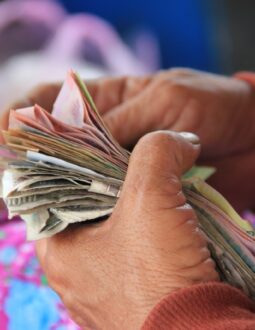
Evidence on the Use of Cash and Voucher Assistance to Prevent and Respond to Gender-Based Violence in Humanitarian Settings
PublishedUntil now there has been limited evidence on the impact of cash and voucher assistance (CVA) on the prevention of and response to gender-based violence (GBV) in humanitarian settings. To bridge gaps in evidence and to complement its existing guidance and tools on CVA-integrated GBV programming, the Women’s Refugee Commission and its global partners are generating evidence on the use of cash assistance integrated within gender-based violence (GBV) case management to support survivors’ recovery from violence.
Evidence generated so far includes the following contexts: Colombia, Ecuador, and northwest Syria. This is shared below, alongside documentation of operational learning and recommendations and selected program tools from the program models evaluated.
Photo credit: 2022 Niels Steeman – Unsplash
Quick Links
Videos | Evaluation Reports | Learning Briefs | Webinars | Workshops | Program Tools
Videos
- Integrated Cash and GBV Programming for Survivors of Intimate Partner Violence in Guayaquil, Ecuador (English and Spanish)
- Integrated Cash and GBV Programming for Survivors of GBV in Norte de Santander, Colombia and Northwest Syria (English)
- Integrated Cash and GBV Programming for Survivors of GBV in Norte de Santander, Colombia and Northwest Syria (Spanish)
- Integrated Cash and GBV Programming for Survivors of GBV in Norte de Santander, Colombia and Northwest Syria (French)
- Integrated Cash and GBV Programming for Survivors of GBV in Norte de Santander, Colombia and Northwest Syria (Arabic)
Evaluation Reports
- “With money I’m the queen." - Ecuador (English)
- “With money I’m the queen." - Ecuador (English Summary)
- “With money I’m the queen." - Ecuador (Spanish)
- “With money I’m the queen." - Ecuador (Spanish Summary)
- “We have a way to start out on our own.” - Colombia (English)
- “We have a way to start out on our own.” - Colombia (English summary)
- “We have a way to start out on our own.” - Colombia (Spanish)
- “We have a way to start out on our own.” - Colombia (Spanish Summary)
- “No one has power over me.” - Northwest Syria (English)
- “No one has power over me.” - Northwest Syria (English Summary)
- “No one has power over me.” - Northwest Syria (Arabic)
- “No one has power over me.” - Northwest Syria (Arabic Summary)
- Three-Country Evaluations Summary (Colombia, Ecuador, Northwest Syria)
- Three-Country Evaluations Summary (Colombia, Ecuador, Northwest Syria) - (Spanish)
- Three-Country Evaluations Summary (Colombia, Ecuador, Northwest Syria) - (French)
- Three-Country Evaluations Summary (Colombia, Ecuador, Northwest Syria) - (Arabic)

